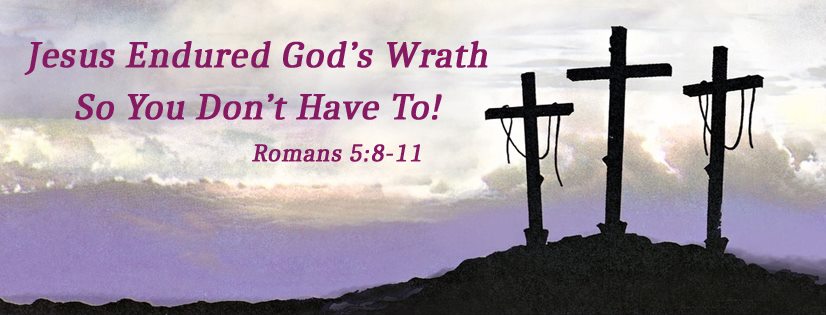
If you’ve never seen the 1998 movie The Red Violin, I would highly recommend it. Using a series of flashbacks, the movie follows the title’s namesake through key moments in its history up until modern day, when it is being prepared for auction. Appraiser Charles Morritz (played by Samuel L. Jackson) suspects this particular item might be the legendary last violin made by Nicolo Bussotti, a famous luthier. After authenticating its true identity, Morritz desires to own the violin himself and contrives a plan to replace the original with a copy whose identity is significantly less impressive.
Identity is important to us. We take pride in our identity and do everything we can to protect it. We create passwords for every account we hold. We install anti-hacking software on our computers. We sign up for programs that alert us when our identity is used suspiciously. Yet, many of us have let our true identities, like the red violin’s, be swapped for an identity that pales in comparison. More surprising, however, is that the person stealing our identity is ourselves.
A person identifies themself in many ways. Some find their identity in their nationality or culture. Others place that importance on family. A major source of someone’s identity is their job and career. Still, others look to more surface levels aspects of their lives to define who they are, such as which social circle they move in, what hobbies they enjoy, or to whom they are attracted.
Unfortunately, none of these encompass every aspect of a person’s life. In many cases, family and culture matter little when making decisions that may affect your career or the company for which you work. What you do with your money and how you handle your finances often don’t correlate with what you specifically do to make a living. Hobbies only define a person for as long as that hobby holds interest for them and who you date rarely comes into consideration when faced with a moral dilemma.
There is only one identity that covers every aspect of our lives: every decision and action of every minute of every day, month, and year. That is the identity given to us by God. Regardless of a person’s beliefs, everyone is in some kind of relationship with God, whether amiable or antagonistic. He created us, maintains our lives and the universe we live in, and will one day be the ultimate judge of all. For me and other Christians, our identity is more specifically defined as “In Christ”. The ramifications of our identity in Christ are innumerable, but I will list five of which I feel are some of the most important.
SINNER
“If we say we have no sin, we deceive ourselves . . .” (1 John 1: 8-10)
See also Rom 3:23, Mark 10:18, Isa 64:6, Ecc 7:20, Jer. 17:9,
One of the biggest misunderstandings about Christians, even amongst Christians themselves, is that they don’t sin, or at least do a better job of avoiding sin. Nothing could be further from the truth. In fact, it could be argued that Christians are worse sinners because they know what God requires, yet still fail to follow His commands.
But what exactly is sin? Everyone knows the biggies – murder, lying, stealing, adultery. But sin is much more subtle than that. One definition of sin is to trust in anything more than God. That’s could be someone’s own abilities, the latest social movement, a mentor’s advice, or a person’s experiences.
Jesus put it rather succinctly: “You shall love the Lord your God with all your heart and with all your soul and with all your mind. You shall love your neighbor as yourself. On these two commandments depend all the Law and the Prophets.” (Matt. 22: 37-40) Under this definition, the opportunity to sin is opened wide. Do you boast about your own accomplishments (even if just to yourself) instead of acknowledging God’s blessing? Do you share in the office gossip, discussing things about people you would never say in front of them? Do you avoid responsibility for your own mistakes? Do you seek to get even when wronged? Do you fail to offer assistance when someone has a legitimate need? Do you condemn others who don’t believe in God or don’t follow Him exactly as you do? And the list goes on . . .
LOVED
“God shows his love for us in that while we were still sinners, Christ died for us.” (Rom. 5:8)
See also John 3:16, Eph. 2:4-5, Psalm 119:76
Another misunderstanding is that God only loves someone as long as they live up to His standard. In effect, a person must earn God’s love. Again, this couldn’t be further from the truth. God desires a relationship with his creation. Scripture is clear that God loves us even when we fail to show love back.
One of the best Hebrew words to describe God’s love for us is “hesed,” as found in the book of Ruth. Hesed is translated in multiple ways, including steadfast love, mercy, kindness, loyalty, and goodness. The word encompasses the concepts of commitment and undeserved grace. God’s love is all these things rolled into one. [1]
Furthermore, it is unconditional. God loves us despite what we do. This is best demonstrated in the lives of such Biblical figures as Job, Joseph, Abraham, and others written about in the book of Genesis. These scriptural forefathers lived hundreds of years before God gave the Law to Moses. They lived by their best understanding of what was right and wrong. It’s not too hard to assume that their choice didn’t always line up with the heart of God. Yet, God blessed them, promised them great things, and made good on those promises.
God’s love transcends our sin, which brings us to the next aspect of a Christian’s identity.
RECONCILED
“For if while we were enemies we were reconciled to God by the death of his Son, much more, now that we are reconciled, shall we be saved by his life.” (Rom 5:10)
See also 2 Cor. 5:18, Gal 2:16, Eph. 2:8-9
God hates sin. The Bible pulls no punches regarding that fact (Psalm 5:4). Sin separates us from God (Isa. 59:2, Gal. 5:21). Furthermore, God is just and cannot let sin go unpunished (Rom. 2:6-10). Yet, as we just learned, God loves us unconditionally and desires a relationship with us. So how can God maintain a relationship with us while not letting sin go unpunished?
The answer is Jesus Christ.
Jesus lived a life of perfect obedience to God. Despite having no sin debt of this own, he willingly went to the cross to die the death that we deserve, taking on the full wrath of God’s punishment. God, as the One ultimately sinned against, is content to apply this sacrifice as payment for sin to anyone who sincerely accepts it.
FREE FROM THE POWER OF SIN
“He himself bore our sins in his body on the tree, that we might die to sin and live to righteousness.” (1 Pet 2:24)
See also Rom. 6:14, Rom. 8:1-2, Acts 13:38-39, 1 Cor 10:13b, John 3:18
Having their sin debt paid, the Christian is now free from sin. Note, I said free “from” sin, not “to” sin. Sin still has consequences in this world, which is why God lovingly gave us His law. Its purpose was not to burden us with rules and take away our fun, but to protect us from harm and hurt. What freedom from sin does mean, however, is two-fold.
First, the Christian is pardoned from the eternal consequences of our sin. There is no longer any condemnation for those who have accepted Christ. Instead of eternal separation from God, the way is open for eternal relationship.
Second, the Christian’s very nature is changed so that sin begins to lose its attractiveness. Prior to accepting Christ, a person’s heart is corrupted by the Fall in the Garden of Eden. Its desires are selfish and self-centered. However, once that person becomes a Christian, their heart is renewed and its desires leans more toward those of God (Eph. 4:20-24). Theologian Jonathan Edwards wrote that a person never chooses contrary to his desire, but always acts according to his desire. [2] If that is true, when a person is under the power of sin, they are slaves to their deceitful desires. But true faith in God changes those desires. This doesn’t mean they always choose what is right. However, it does mean the chains of sin have been broken and, as they grow in faith, they will more and more choose what is righteous and holy.
HEIR
“So that being justified by his grace we might become heirs according to the hope of eternal life.” (Titus 3:7)
See also Acts 20:32, Rom 8:17, Col. 1:12, Gal. 4:7,
Earlier I used the phrase “in Christ” to define a Christian’s identity. Until recently, I had a hard time defining exactly what this meant. However, my church’s new senior pastor has presented an easy-to-understand way of thinking about this term: What is true of Christ is true of the Christian.
Jesus, the perfect son of God, is the rightful heir of all that God has to offer. That means when someone is “In Christ” they are also heirs of all that God has to offer. They receive His blessings and have a home for eternity with God. They are adopted into His holy family. And this isn’t just for a season or era; it is for eternity.
REAL OR COUNTERFEIT
Where we come from, what we do, and who we associate with are all important factors in making us who we are, just as the sound, mechanics, and color of the instrument mentioned at the start of this article make it a Red Violin. However, it is its creator and history that give the Violin its real identity and value. In the same way, our Creator and His purpose for us give us our real identity. I constantly need to remind myself to stop accepting the counterfeit identity I so often give myself and embrace my true identity, the one that is of true value.
Are you accepting your own Counterfeit Identity? If so, I would urge you to test out your Identity with God and see what He has to offer.
[1] Grossett, Shanté. “What the Book of Ruth Teaches Us about God's Hesed.” Daily She Pursues, February 25, 2022. https://dailyshepursues.com/ruth-and-gods-hesed-love/.
[2] Sproul, R. C. Willing to Believe: The Controversy over Free Will. Grand Rapids, MI: Baker Publishing Group, 2002. Pg. 155.
Please consider helping Half Air by visiting our support page.


 It was a model that uses coffee pods that are inserted into the top. However, the cabinet right above the coffee maker interfered with opening the hatch to insert the pod. While I worked around this in the past, now with the slider I can pull the whole appliance away from the cabinet, fill it up, and then push it back while it brews. Not only does this allow me to easily insert the pod, but it also saves me the trouble of reaching over the counter for it, making the entire process easier.
It was a model that uses coffee pods that are inserted into the top. However, the cabinet right above the coffee maker interfered with opening the hatch to insert the pod. While I worked around this in the past, now with the slider I can pull the whole appliance away from the cabinet, fill it up, and then push it back while it brews. Not only does this allow me to easily insert the pod, but it also saves me the trouble of reaching over the counter for it, making the entire process easier. Next is my wife’s cozy. She already had a metal one that was sized for cans. She used it all the time because it kept her drinks cold for long periods. However, many times my wife drinks 20 oz. bottles that are too big for the smaller cozy. Seeing this, my daughter gifted her a remedy: a larger metal cozy that fits both cans and large bottles. To be honest, we didn’t even know such a thing existed, but now, my wife can enjoy any size drink without having to worry about it growing warm.
Next is my wife’s cozy. She already had a metal one that was sized for cans. She used it all the time because it kept her drinks cold for long periods. However, many times my wife drinks 20 oz. bottles that are too big for the smaller cozy. Seeing this, my daughter gifted her a remedy: a larger metal cozy that fits both cans and large bottles. To be honest, we didn’t even know such a thing existed, but now, my wife can enjoy any size drink without having to worry about it growing warm. replaced our old can with a new, modern metal can. By now I was prepared. Her gifts may not look like much, but they always turn out to be some of the best items I receive. The trash can turned out to be no different. Besides having a sturdy lid that stays on, it also has an inner liner to help with emptying and cleaner. No joke, this trash can may have received my most excited response last Christmas. It’s very possible that no man has ever loved a garbage can more.
replaced our old can with a new, modern metal can. By now I was prepared. Her gifts may not look like much, but they always turn out to be some of the best items I receive. The trash can turned out to be no different. Besides having a sturdy lid that stays on, it also has an inner liner to help with emptying and cleaner. No joke, this trash can may have received my most excited response last Christmas. It’s very possible that no man has ever loved a garbage can more.